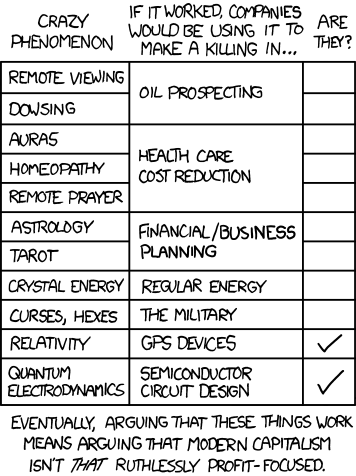What should we do about climate change?
Posted on 27 October 2010 by Kevin Judd
 A short piece for the general audience of RTR radio, Perth, Australia.
A short piece for the general audience of RTR radio, Perth, Australia.
(listen to the original audio podcast)
Climate scientists are telling us that the earth is warming, we are causing it, and we should reduce carbon dioxide emissions to lessen the effects. So what should we do?
Firstly, we should either use less energy, or use renewable energy sources, like solar-thermal generators that are now providing energy in Europe more cheaply than Nuclear generators, without the waste products. In Australia, peak energy demand is on hot summer days, when solar energy is most abundant; it makes no sense to not use solar energy to help meet this peak demand.
Most importantly, we must stop listening to disinformation. Contrary arguments have been repeatedly shown to be false and misleading. Claims that climate change is a hoax, or a conspiracy, or that climate scientists have deceived the public, is an inversion of the truth. Climate change denial is the propaganda. Ninety seven percent of scientists agree climate change is happening. The peer-reviewed evidence is overwhelming. The time for scepticism about climate change has past.
Scepticism is a good thing, all scientists are sceptics. I always encourage people to critically examine evidence and motivations. A good place to begin is the following. What is more plausible? That thousands of scientists have been fabricating evidence and theory for over a hundred years in a conspiracy to achieve, well, what exactly? Or that industries and their partners are sponsoring a disinformation campaign because they stand to lose billions of dollars in profits, if people should use less, or alternative forms of, energy? Ask yourself who stands to lose the most if the scientists' warnings are acted on? Then ask yourself who stands to lose the most if scientists' warnings are not acted on.
And keep in mind that the costs of prevention now is less than the cost of trying to fix the damage later































 Arguments
Arguments























 0
0  0
0







Comments